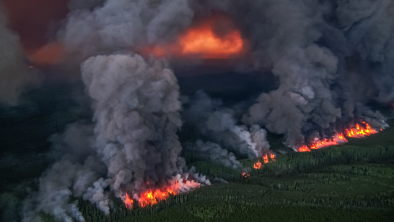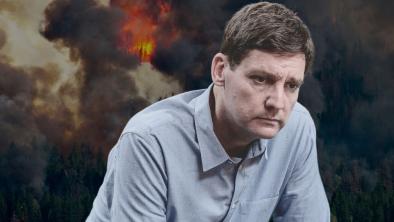Rainforest Reflections - Wild Times
Wednesday, March 14, 2007

March 15th, 2007 - Read Joe Foy's Wild Times column in the Watershed Sentinel as he looks at the campaign to end old growth forest logging in countries around the world and right here at home.
By Joe Foy
It’s a funny thing about rivers in oldgrowth rainforests. When I’m sitting down next to one of them they remind me of home, no matter where in the province or world that I am.
I guess the happy sound of water on the move, the feel of smooth stone on the hand and the rich smell of the rain forest, all work to put me at ease.
On a trip to the Philippines to visit with my wife’s relatives, our family had some great times poking around a few of the local creeks and rivers. I soon found out that there are many things that BC and the Philippines have in common.
For one thing, both BC and Philippines have old growth rainforests. The Philippine rainforests are tropical while ours are temperate. All of the rainforest rivers flow into the Pacific Ocean or associated inland seas. And the rivers and rainforests in both places have sustained tribal peoples since time immemorial. The rainforests in both places are incredibly beautiful and mysterious.
We also have other things in common. Industrial logging has hit both of our old growth rainforests hard. Both places have had a long history of logging. But the three decades of the 60s, 70s, and 80s was when the most damage was done. The companies really boosted the cut, and as a result wildlife populations of old growth rainforest dependant species collapsed. The largest eagle in the world, the Philippine eagle, today survives only in the most remote rainforest valleys, a victim of the relentless pace of logging. So too the few remaining survivors of BC’s spotted owl population huddle in increasingly isolated stands of old growth rainforest on BC’s southern mainland.
But in the 1990s something remarkable happened. Ordinary people in both places came together and demanded change. In the Philippines, farmers, tired of floods and mudslides, demanded that the logging companies be reined in and prevented from stripping the hillside headwater areas. In BC the unrest culminated with the great Clayoquot Sound protests
of the early 1990s. Tribal groups in both places were at the forefront, having the most to lose from the rainforest destruction. As a result new parks and protected areas were designated in Philippine and BC rainforests.
But in the Philippines something else happened too. In many places the remaining old growth rainforest, whether it was inside or outside of a park or protected area was designated off-limits to logging. New Zealand too has followed this course of action. The benefits have been huge. Helping to hold on to endangered wildlife, protecting water quality,and sustaining tribal traditions are just a few of the dividends.
And now, here in BC the Wilderness Committee has just published a four page educational paper calling for the banning of old growth logging on Vancouver Island. The latest satellite photos show that 73% of Vancouver Island’s old growth forests have already been logged. Even worse, fully 90% of the Island’s valley bottom old growth forests have been cut. Valley bottom old growth forests grow in the richest soils, under best weather conditions, and have the biggest trees and the most wildlife habitat.
In other areas of Vancouver Island, like Clayoquot Sound and the northwest coast, great old growth rainforest valleys still stand strong, bursting with promise and life. The Wilderness Committee calls for an immediate logging ban in the most endangered old growth forests, and a phased-in ban in areas of the Island where significant old growth still exists. By 2015 the ban on old growth logging would be island-wide, with lumber and value-added wood products made from second growth forests only.
If you like the idea of a ban on old growth logging and want to help spread this idea across the province, why not give the Wilderness Committee’s Victoria office a phone call and help distribute some of their educational papers in your community? You can reach them at (250) 388-9292.
Joe Foy is Campaign Director for the Wilderness Committee, Canada’s largest citizen-funded membership-based wilderness preservation organization.


